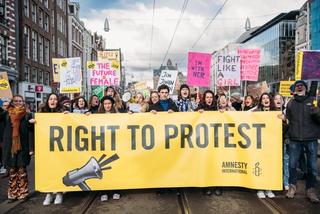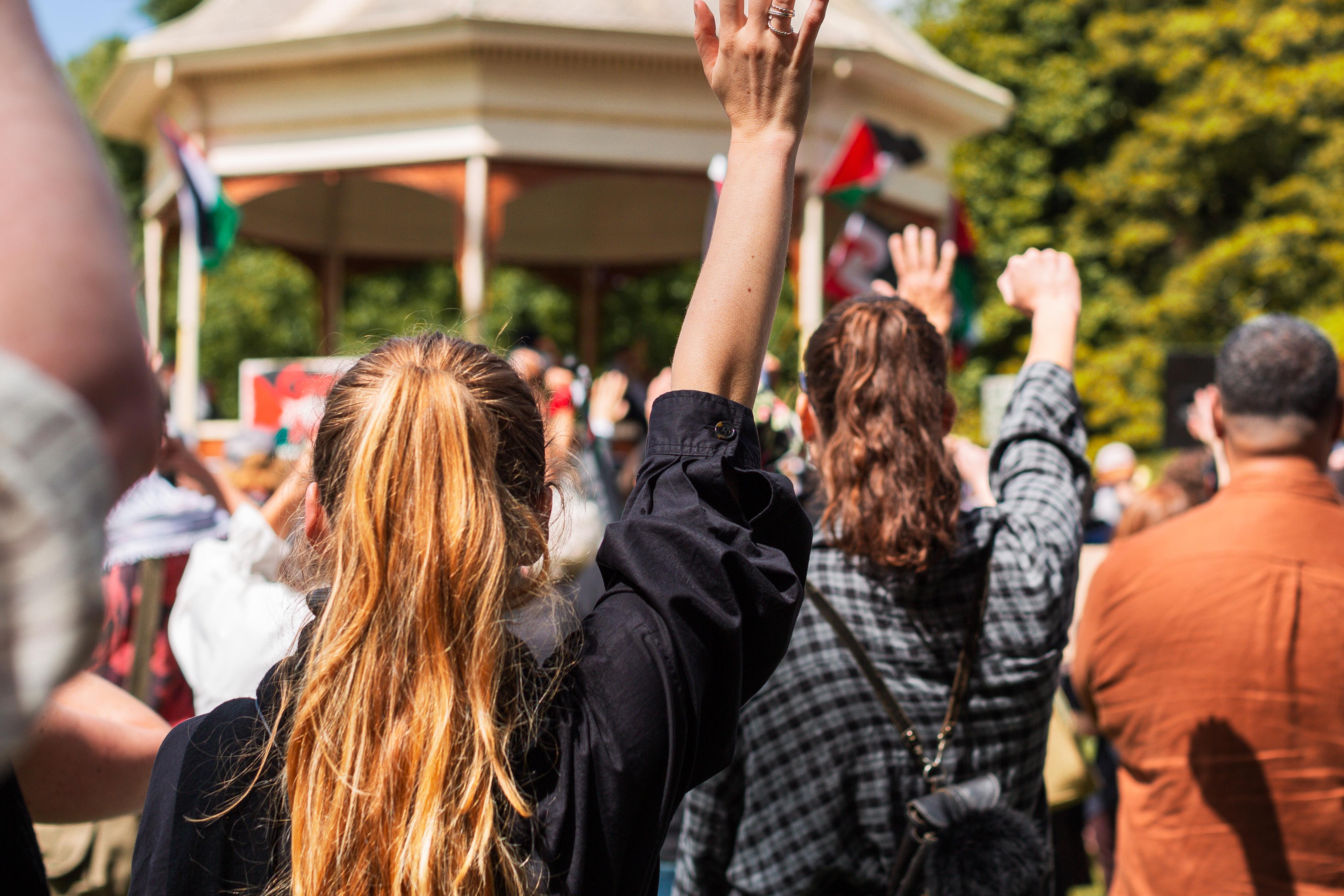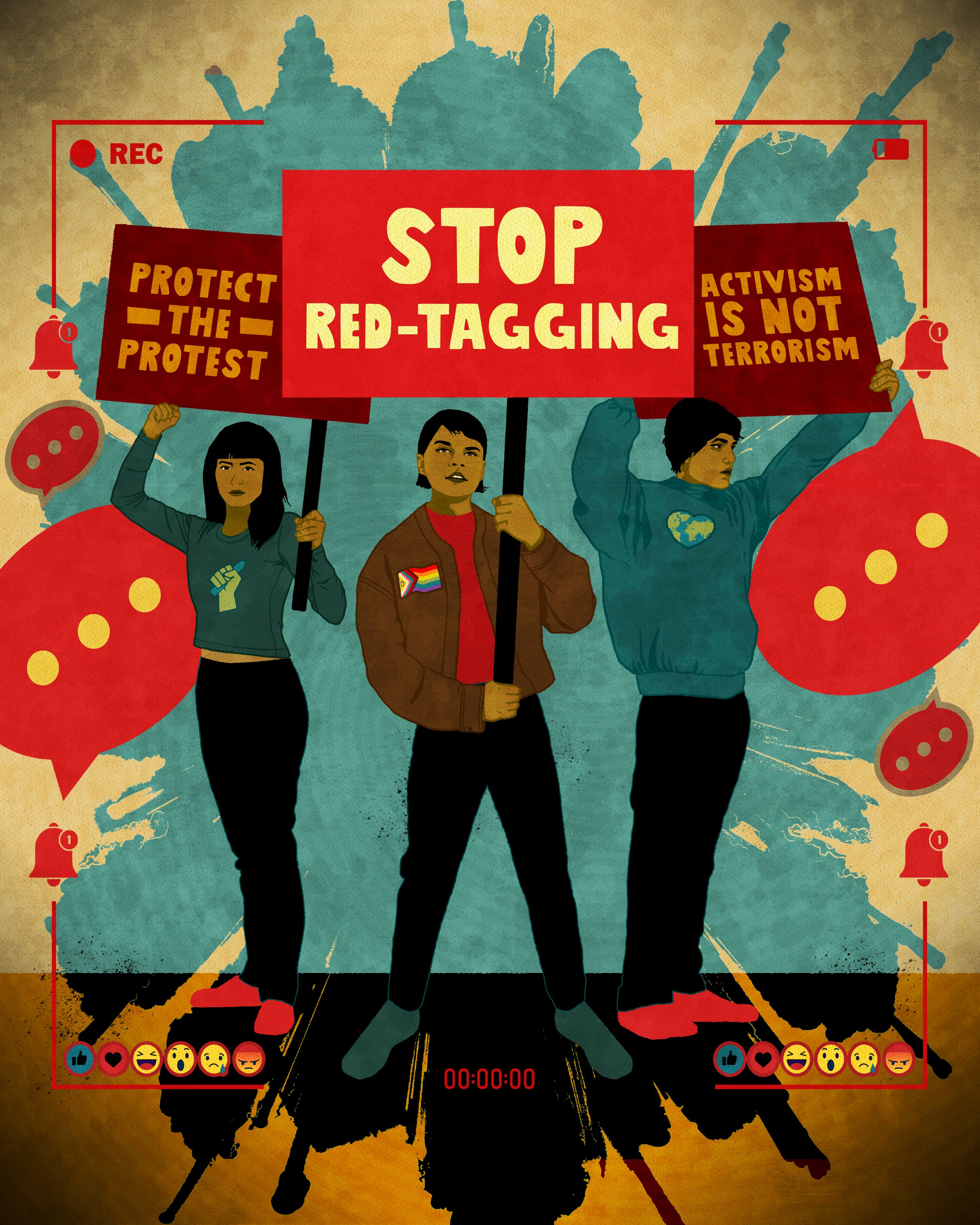We must halt a new proposal on police powers around public protests
In February this year the Independent Police Conduct Authority (IPCA) released
‘Thematic Review: The Policing of public protests in New Zealand’, recommending new legislation and changes to police powers around public protests.
We along with others in the community are deeply concerned by these proposals and the potential chilling effect it could have on the right to protest. We want to see the proposals halted and not progressed any further.
Right now, we understand the proposals are sitting with the Ministry of Justice, and there hasn’t been any formal direction given by the Minister of Justice (Minister Paul Goldsmith) to progress the work and turn the proposals into a Bill.
This means there is a window of opportunity here for us to take action and stop the proposals turning into a Bill. That’s why we’re asking you to write to Minister Goldsmith and your local MP opposing the proposals. (Contact details are below).
Below is background information along with information on the proposals, and a summary of our concerns. You are welcome to use any of this content in writing and talking with the Minister and MPs (however please make sure you reference any quoted material from other sources appropriately).
We urge you to write to Minister Goldsmith to express your concern!

The right to protest and people power are fundamental to upholding human rights
Protest is an invaluable way to speak truth to power. Throughout history, protests have been the driving force behind some of the most powerful social movements, exposing injustice and abuse, demanding accountability and inspiring people to keep hoping for a better future.
In Aotearoa we have seen the critical role protest plays in challenging injustice and colonisation. From the Springbok tour, to Parihaka, to getting women the vote, to gaining marriage equality, to the Rainbow Warrior and being nuclear free, to the Hīkoi mo Te Tiriti – Aotearoa has a rich history of standing up for change and for each other.
Unfortunately, these precious rights are under attack around the world and must be protected. Globally we are seeing a rise in authoritarian practices and serious human rights regression.
Aotearoa is not immune from these trends. We are seeing policies chipping away at our foundations and a number of policies with serious human rights concerns.
We are seeing a sustained and systematic attack on Te Tiriti and indigenous rights, proposals impacting voting, concerning use of urgency in Parliament that stifles debate. There are so many more examples.
What path is this all taking us down? We must take a stand for the type of society we want. In this context, the Right to Protest is as important and needed as ever.

What are the proposals?
The report identifies a number of problems, with a particular focus on a lack of clear guidance for Police when making decisions, such as on weighing up different rights when it comes to protecting the rights of protestors while, at the same time, ensuring public order and safety.
Specific proposals include:
- Create a new regulatory regime for advance notification by organisers of designated types of assemblies (including protests).
- Allow senior Police officers, in consultation with local authorities (and, in relation to a state highway, NZ Transport Agency Waka Kotahi), to set conditions in advance as to the way in which a protest must be conducted with which participants must comply.
- Specify that either (a) notification and the conducting of a protest substantially in accordance with the terms of the notification would protect participants from criminal and civil liability; or (b) a failure to notify would constitute a criminal offence.
Our main call
We want to see the proposals halted and not progressed any further. We are deeply concerned that the proposals contain significant limitations on the freedom of assembly, movement and expression.
While there are issues to work through, the current proposals in the report are not the way to go in terms of a solution.
“There is valid work to be done in how protests are policed, and protest rights upheld. The report highlights that police find the current system confusing and therefore implement it unevenly. That is unhelpful. However, the solution should be to create clarity through clear definitions, education, and rights-based approaches. There is 35 years of jurisprudence, including significant court cases such as Begg, Oosterman, Morse, and Moncreff-Spittle which have set clear guidelines for the police about how to apply NZBORA.”New Zealand Council for Civil Liberties, guest post by Kyle R. Matthews
Rather we need a process guided by Te Tiriti o Waitangi, where different communities are engaged in discussion, especially those involved in protest, to work out what’s needed.
Key concerns
Ultimately the proposals contain potential for significant limitations on the freedom of assembly and expression. We note that the report does not include any in-depth human rights analysis.
We have serious concerns about the proposals and the potential impact on the right to protest. It could have a chilling effect - creating barriers to protest that would have wider societal impacts. Consider how so many of the major changes that we benefit now from as a society, were hard won by with protest.
Two key concerns described below include how the proposals risk the right to protest, and the risk of misuse and creation of a pathway for further restrictions.
The proposals risk undermining the right to protest
Broader concerns about the risk that such a regime could be abused or lead to a system that is more restrictive
Need help with what to say?
Here are our key points that you can use when writing to Minister Goldsmith and your local MP opposing the proposals.
Have your say
The right to protest is a critical safeguard to protect all of our human rights. We have a window of opportunity to call on the Minister to stop this work progressing into a Bill.
We urge you to write to Minister Goldsmith, as well as your local MP, to express your concerns and call for a halt to the proposals.






